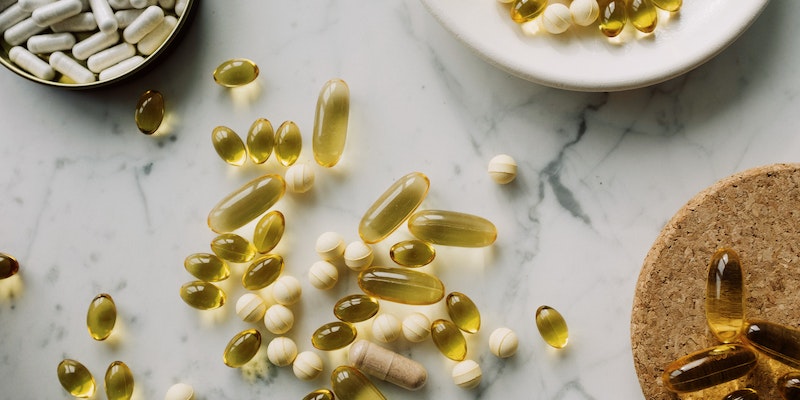Feeling Good: 12 Surprising Health Benefits of Sex
Oct 01, 2023
Sexual engagement positively affects mental health, sleep quality, cardiovascular disease risk, and chronic pain management. You could feel happier, healthier, and more connected to your partner after having sex, which has been proven by research. A regular sex routine helps you avoid many diseases and keeps you healthy and happy.
It turns out that there are benefits of having sex regularly. Researchers have shown that sex improves health in every region of the body. Here are 12 health benefits of sex.
- Regulates Blood Pressure
- Improves Immunity
- Lessen Your Worries
- Increases Sexual Desire
- Helps With Pain
- Increases Bone Strength
- Boosts Cardiovascular Health
- Regulates the Menstruation Cycle
- Regulates Sleep
- Menopause Delay
- More Rigid Muscles in the Pelvis
- Reduces Risk of Breast Cancer
Regulates Blood Pressure
Sexual activity reduces stress and improves mental wellness. By lowering anxiety and depression, sexual expression may lower blood pressure because tension narrows blood vessels and raises blood pressure, creating hypertension. Sexual stress reduction reduces blood pressure over time. Normally, the benefits of morning sex are inevitable.
Also, sexual activity produces endorphins, which boost mood and alleviate hypertension-related depression and anxiety. However, some might claim that frequent sexual activity may decrease hypertension, but further research is needed. Healthy eating, exercise, and medication can help high blood pressure patients.
High blood pressure can prevent safe sexual activity. Severe hypertension or other cardiovascular problems may make sexual positions or activities difficult.
Improves Immunity
The Immune system comprises white blood cells; the most important white blood cells are lymphocytes. Our lymphocytes increase with sex. As per research, sexual partners had more lymphocytes 45 minutes after orgasm than five minutes before, showing that sexual desire and orgasm affect our immune system.
As indicated, lymphocytes create vital antibodies. These antibodies contain immunoglobulins, proteins that bind to infections. Having more immunoglobulins in your system helps fight illnesses and viruses like COVID-19. In another study, college students who had sex once or twice a week had the highest IgG levels of all control groups.
Lessens Your Worries
Having sex is a great thing to do to say goodbye to worries. Sexual activity releases happy hormones like endorphins and oxytocin, which endure. The relationship between stress and sexuality is complicated. Most of us know this unconsciously and experience it clearly when we use sex to relieve stress successfully or when a stressful week or two saps our sex desire.
Your body feels calm and stress-free after sexual intimacy because the happy hormones come from your glands. If you have anxiety, these hormones help you relax. Sex affects hormones, brain chemicals, and stress hormone levels.
Increases Sexual Drive
The release of "feel-good hormones" from the brain and body during sexual activity makes both partners want more sex. Since sexual activity raises desire, participating in the cycle can be enjoyable. And your sexual urges keep nagging at you. So, have more sex if you want more physical closeness, as silly as it may sound.
Helps With Pain

Yes, sex can help with the pain. Migraine and cluster headache sufferers, rejoice: sex might be the answer to your distress. A study revealed that women in pain might benefit from orgasms. The research analyzed discomfort caused by trauma, arthritis, childbirth, and surgery. Moreover, research has claimed that having sex can help women with period cramps. Even if the respite lasted 8 or 10 minutes, it sounds beautiful.
Increases Bones Strength
Despite the obvious pun, having sexual relations can improve your bone density. Estrogen increases with sex, reducing bone disease risk. It reduces the risk of osteoporosis and arthritis in older women. This applies notably to 30–40-year-old women.
Boosts Cardiovascular Health
Having a good sexual life can improve heart health, but maybe not in the way you'd expect.
Researchers dispel the common idea that sexual activity is an adequate replacement for exercise. However, heart disease risk is reduced by the endorphins released during sex, which can also minimize despair and anxiety. The absence of a spouse is dangerous for single males in such cases. These benefits extend to other areas of health as well, such as the cardiovascular system.
Regulates Menstruation Cycle
Can sex change or postpone your period? Short answer: No. Planned Parenthood states that sexual activity can only 'change' your period if you get pregnant, which ends your period. However, sex and sexual excitement produce oxytocin and other chemicals. Any hormonal alteration might affect your menstrual cycle, as hormones significantly influence it. However, how that influence will emerge is unclear. So, having regular sex can help you in regulating your period cycle.
Regulates Sleep
Hormones associated with sex, like oxytocin, dopamine, and progesterone, calm your body and help regulate sleep schedules. You'll fall asleep after releasing them. Sexual activity and orgasm produce hormones that can improve sleep.
In addition to the chemicals that help increase sleep, the pure physical effort of sex can aid in sleep. Long quantities of rigorous sex can drive the body to weariness, facilitating a deeper, more profound sleep.
Menopause Delay
Sexual behaviors significantly contribute to how late a married woman reaches menopause compared to a single or divorced woman. That's because a woman's body automatically evaluates her odds of getting pregnant whenever she engages in sexual activity. However, it sees little value in ovulation in most situations. If a woman has intercourse sometimes, her body won't interpret it as a consistent signal. She is likely to have menopause earlier in life.
More Rigid Muscles in the Pelvic
The pelvic floor muscles do benefit from sexual activity. One research evaluated the pelvic muscle strength and tone of sexually active and non-sexually active women. Women who reported never having sexual relations were less likely to have a solid pelvic floor than sexually active women.
Reduces Risk of Breast Cancer

Women who regularly engage themselves have a lower ratio of breast cancer because the hormone oxytocin released during sexual activities promises to decrease the chance of breast cancer.





